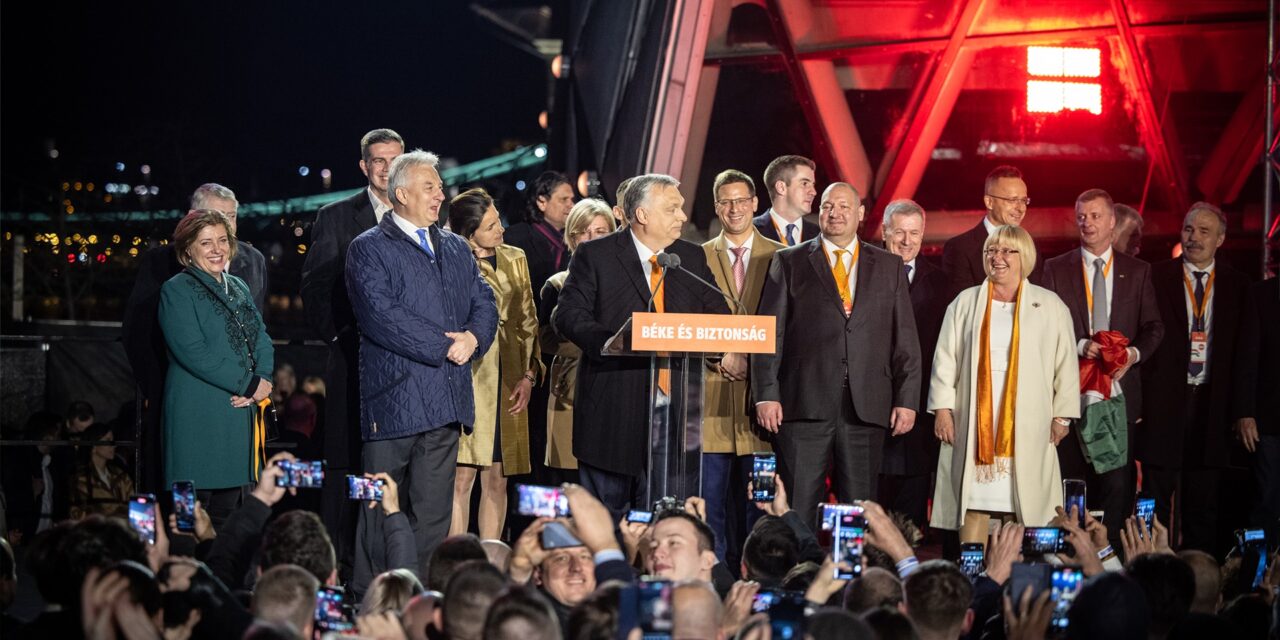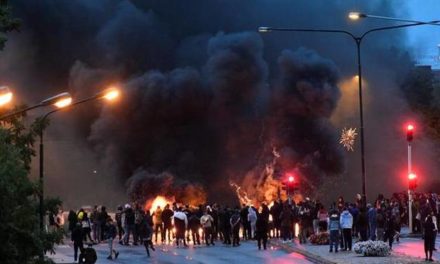Lazar Berman begins his analytical article by saying , "Hungary's national leader is accused of being Putin's ally and therefore undermining democracy, but the Hungarians want him to serve their interests first and foremost . Some of the accusations against Viktor Orbán from Brussels are serious: he erodes Hungarian democracy, tries to trivialize Hungarian complicity in the Holocaust, flirts with anti-Semitic overtones, hides in bed with the Russian Vladimir Putin... - says Berman.
"For Israel, Orbán's victory is a diplomatic blessing"
"For Israel and its realist government, Orbán's victory is a diplomatic blessing: because under Orbán's leadership, Hungary has proven to be a solid friend of Israel in the European institutions," he adds.
Back in January, Prime Minister Naftali Bennett thanked Orbán for "Hungary's steadfast support of Israel in international institutions" , and on Thursday, President Isaac Herzog congratulated the Hungarian Prime Minister on his victory in a letter, calling him a "friend and ally"
In his article, Berman states,
"Orbán's convincing election victory gives the Hungarian leader a certain authority in his country to oppose the EU's various positions, including regarding Israel".
He pointed out that in recent years, Budapest has been a loyal supporter of Jerusalem in the European Union, repeatedly preventing the issuance of statements criticizing Israeli policy. In 2020, Hungary was one of the countries that did not publicly speak out against Israel's ultimately failed plan to unilaterally annex part of the West Bank.
By shedding light on the background of EU decision-making, Berman indicates that even the smallest countries in the EU have the opportunity to thwart European initiatives. The bloc makes its decisions on a consensus basis, which means that resolutions condemning Israel must be approved by all 27 member states, including the traditionally Israel-friendly Visegrad Four, which is an alliance of Hungary, Poland, Slovakia and the Czech Republic.
Speaking to The Times of Israel, Hungary's ambassador to Israel, Levente Benkő, said: "with one of the highest election turnouts ever measured since the fall of communism, the Hungarians sent a very clear and unambiguous message by giving a strong new mandate to the current government. This is a form of democratic legitimacy that our partners can hardly ignore in the discussions between the European Commission and Hungary. In particular, many aspects of these debates concern issues that are still largely the exclusive competence of the Member States, and we would like to see it remain that way. The elections did not in any way change the fact that Hungary firmly supports Israel in international organizations and recognizes its inalienable right to self-defense" .
Berman notes: Orbán is less isolated in Europe than many people think.
"The Hungarian Prime Minister was forced to engage in a bitter public battle of words with Ukrainian President Volodymyr Zelenskyi"
In connection with the Russian-Ukrainian war, he points out that Hungary has been repeatedly attacked on the continent due to its opposition to the comprehensive European embargo on Russian natural gas and oil. Hungary strongly opposes the shutdown of the Russian pipelines, as it is highly dependent on Russian energy to heat its homes and power its factories, and there is currently no realistic alternative. Berman emphasizes: Budapest is currently supplying natural gas to Ukraine, however, in the event of an embargo on Russian imports, it will probably stop the supply to Ukraine before causing harm to its own citizens.
Adds:
not many other EU countries are in a position to cut off Russian energy, although they favor renewable energy sources over investment in fossil fuels.
Germany, which is shutting down its nuclear power plants, also needs Russia to run its huge economy and publicly opposes a full embargo, with Austria, Bulgaria and other central European countries also opposing the embargo.
In addition, however, Viktor Orbán, referring to the need for European unity, supported all the current rounds of EU sanctions against Russia.
Berman points out that although Viktor Orbán does not deliver lethal weapons to Kiev and does not allow them to go directly to Ukraine via Hungary, he does allow weapons to go through the country to Poland and from there to Ukraine. He also considers it important to emphasize that Hungary has taken in more Ukrainian refugees per capita than any other European country. Most significantly, Viktor Orbán allows thousands of NATO troops to enter the country, as the alliance seeks to increase its deterrent power against Moscow.
Despite all this, the Hungarian Prime Minister was forced to engage in a bitter public battle of words with Ukrainian President Volodymyr Zelenskyi. Before the elections, the Ukrainian president called Budapest a "European branch of Russia" and also said that Brussels "should no longer listen to Budapest's objections" . In his victory speech, Orbán singled out Zelenskyi as one of the forces defeated in the elections, referring to "the left at home, the international left everywhere, the bureaucrats in Brussels, the Soros empire with a lot of money, the international mainstream media, and finally even the Ukrainian president" .
The left, which integrates the far-right Jobbik, calls Orbán anti-Semitic
Despite his consistent attacks against the liberal Jewish billionaire György Soros, condemned as anti-Semitic rhetoric by Hungarian Jewish groups, Viktor Orbán has always emphasized that he does not tolerate anti-Semitism. At his international press conference, he also emphasized that the policy of zero tolerance against anti-Semitism remains in force.
Berman notes: the Hungarian Prime Minister defeated the opposition alliance that included the far-right Jobbik.
Like the political bloc that overthrew Benjamin Netanyahu last year, the opposition coalition came together with the sole aim of removing Orbán from office.
The plan failed spectacularly. Many far-right voters refused to vote for the communists, and leftists did not want to support the fascists.
The unity of the V4 seems to be breaking down along the anti-Russian rhetoric
Despite Orbán's clear victory, there are worrying signs for Israel. The war in Ukraine created fault lines in the V4 cooperation, between Hungary and Slovakia, and the decidedly anti-Russian Czechs and Poles.
According to Maya Sion-Tzidkiyahu, director of Mitvim's Israel-Europe relations program, “in the wake of the Russo-Ukraine war, Poland seems to be turning around and returning to the embrace of the EU. This isolates Hungary, and the EU has started to apply Article 7 against it" .
In 2018, the European Parliament initiated proceedings against Budapest because it allegedly undermines the bloc's democratic values and the rule of law. This could result in the country losing its right to vote. He took the same steps against Poland, but the procedure against neither country entered an advanced stage.
Sion-Tzidkiyahu believed that "if Poland does not support this step, Orbán will come into even more direct confrontation with the EU. He is already in a budget clash with them" . Two days after Orbán's election victory, the European Commission announced that it would withdraw support from Hungary due to violations of the rule of law.
Despite the above, Berman states that
however, despite tensions in the pro-Israeli bloc, support for Jerusalem is unlikely to disappear or cease.
These four countries, like the other countries belonging to the Soviet bloc, represent much more conservative, nationalistic and often religious populations than their Western European counterparts.
Hungary's politics may irritate Ukraine and many EU countries, but Viktor Orbán has shown that Hungarians expect their leaders to put their interests first, especially when it comes to Russia. Although many sympathize with the Ukrainians, they know that this is not their fight and see no reason to provoke Russia with measures that, moreover, will not end the war anyway.
"Which ultimately isn't all that different from what Israelis expect Bennet to do when it comes to Russia and Ukraine," concludes Berman.
Source: Hirado.hu
Photo: Viktor Orbán's Facebook page












